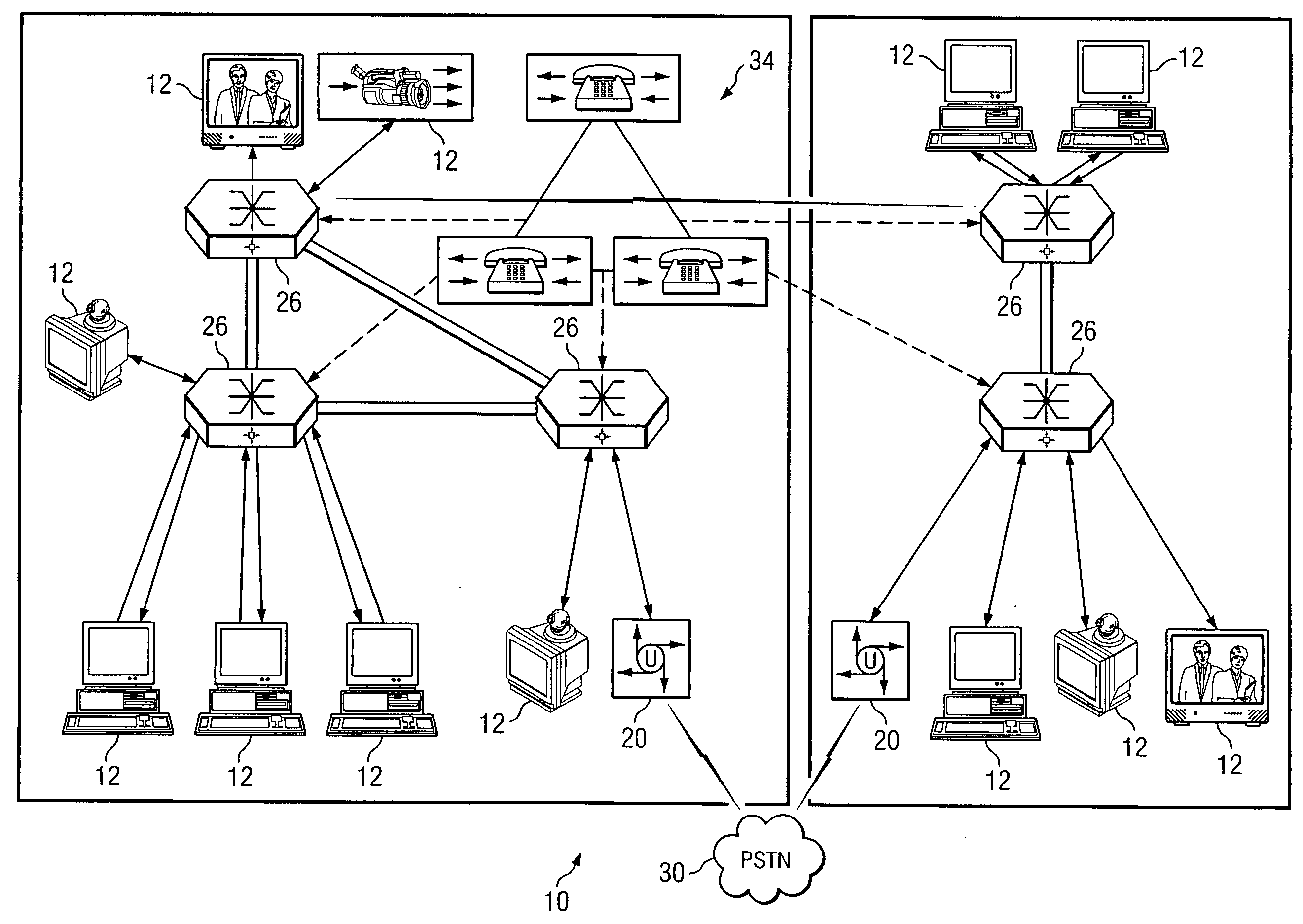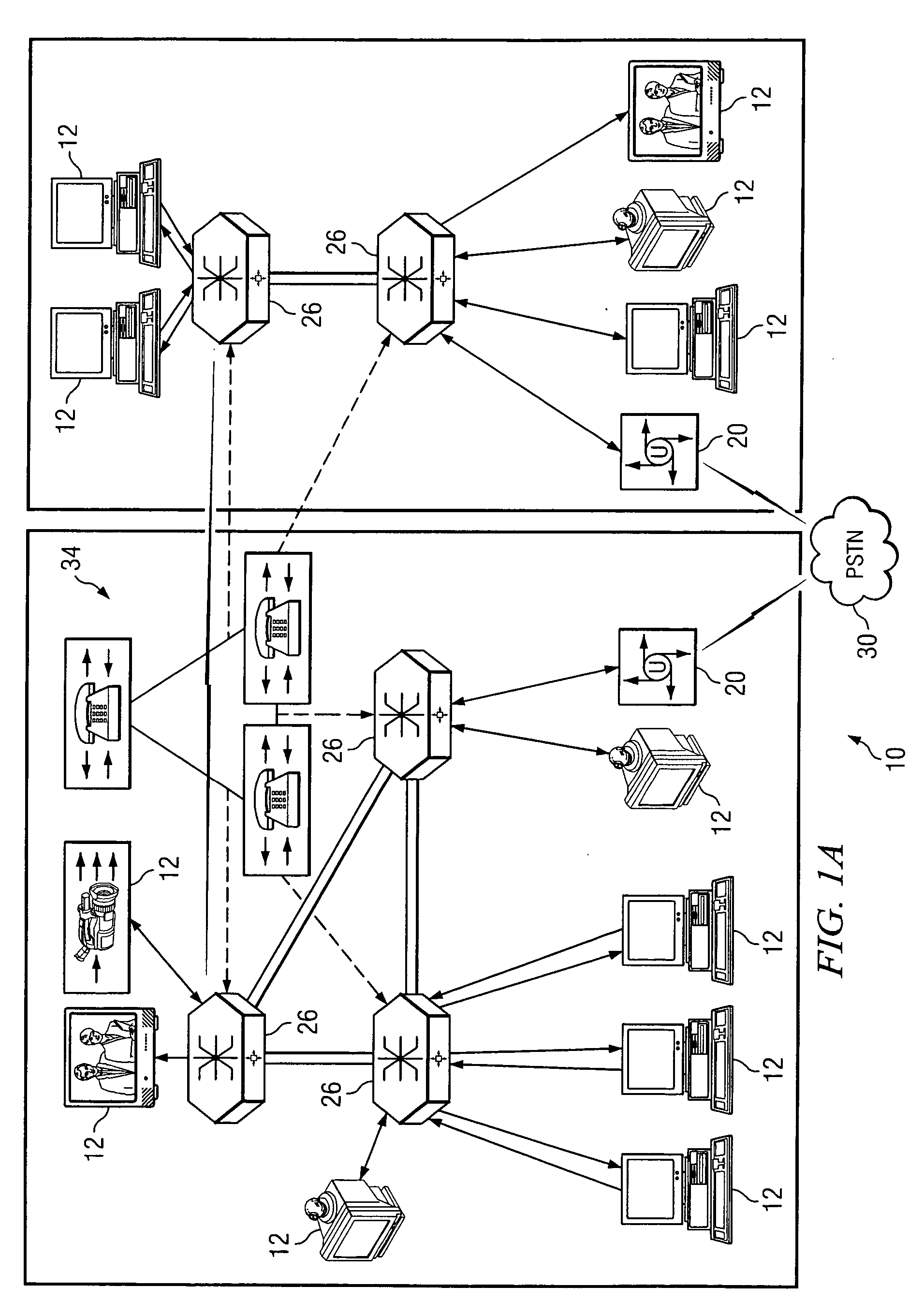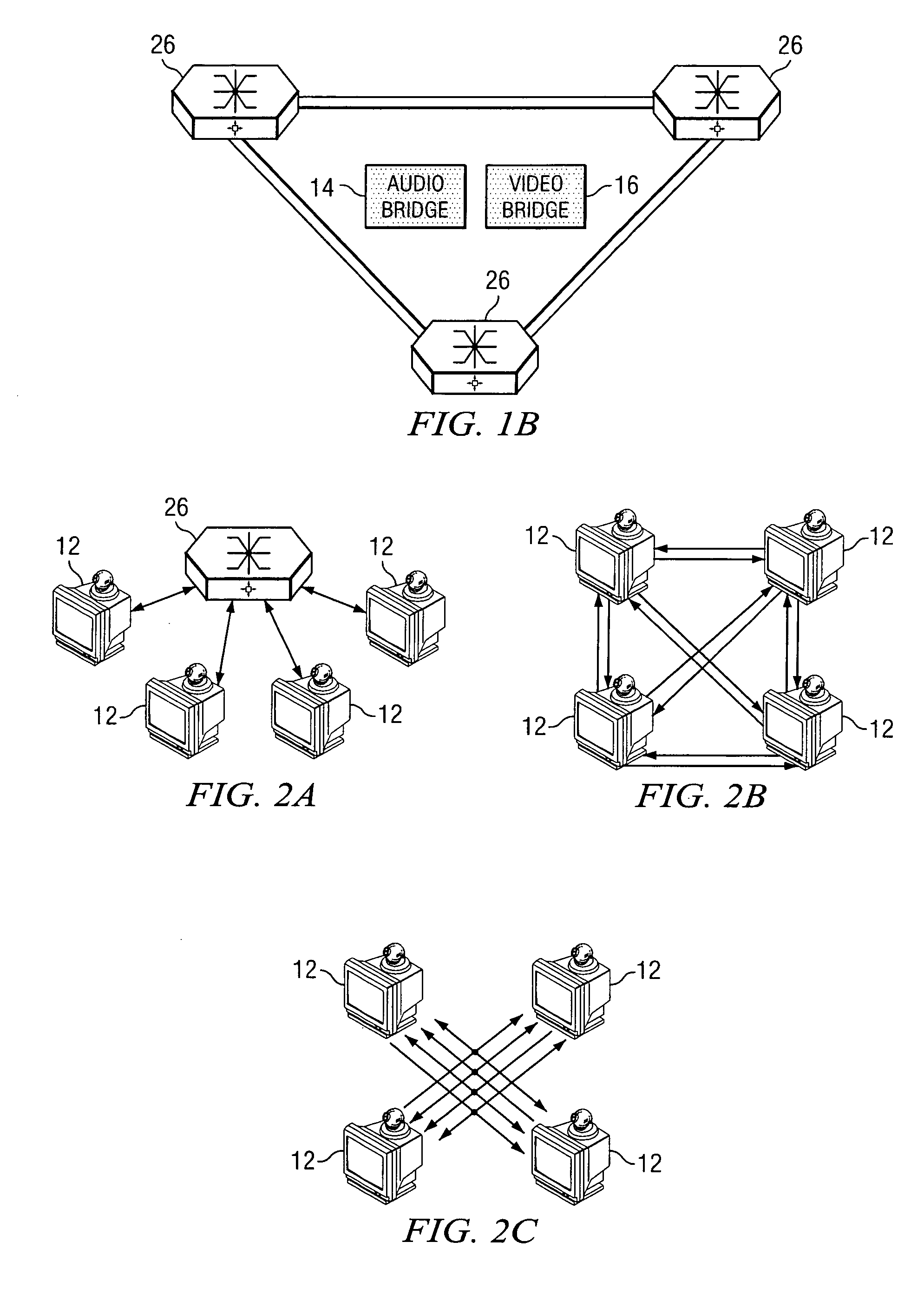System and method for performing distributed video conferencing
a video conferencing and distributed technology, applied in the field of communication, can solve the problems of network architecture and the field of video conferencing have grown increasingly complex in the communications environment, and are significant challenges for network operators, component manufacturers, and system designers, and achieve the effects of preserving any initial equipment investment, facilitating communication, and facilitating communication
- Summary
- Abstract
- Description
- Claims
- Application Information
AI Technical Summary
Benefits of technology
Problems solved by technology
Method used
Image
Examples
first embodiment
[0025] In accordance with communication system 10, a voice-activated conference with centralized audio is achieved. In this embodiment, the audio streams from all end points 12 (both audio-only and video-capable) may be sent to a central audio mixer, where the active speaker is determined. This information is then propagated to all media switches 26. Media switches 26 may suppress all video streams except for the active speaker, and the video stream for the active speaker is propagated to all the MSs in the conference using SSM (Source Specific Multicast). Each media switch 26 replicates the video stream for all its local end points, which may be part of the conference. Alternatively, multicast can be used between media switch 26 and its local end points. Audio mixing can be centralized or distributed; the architecture does not require centralized audio.
[0026] Note that communication system 10 does not necessarily suppress the audio streams: it suppresses video streams. Also, suppre...
second embodiment
[0027] In accordance with communication system 10, end points 12 can choose to lock-on to a particular participant of the conference. This capability may be provided through a separate interface or it may be part of the end point functionality at enhanced end points. Also, not all end points 12 may have the ability to lock-on due to bandwidth and other constraints. End points 12 that may be locked-on may stream an FV stream to the conference. Note that the FV-SV stream distinction, as well as the SSM used to propagate this stream, is not visible to the end point itself. This functionality could be implemented in media switch 26. Where multiple end points desire to lock-on to the same participant, they can subscribe to the same SSM stream, or signaling can be exchanged between media switches 26 to set up appropriate unicast streams. Thus, each end point 12 can receive a mixture of FV and SV streams. An end point can choose not to receive any SV streams at all and just receive the FV ...
third embodiment
[0028] In accordance with communication system 10, the SV stream received by an end point is not switched based on the active audio speaker, but based on other criteria, such as the person controlling the shared whiteboard. Alternatively, the moderator may choose to switch the video source at appropriate times. There may be multiple SV streams in a single conference and they can use different criteria for switching the source. An end point can choose to receive one, multiple, or none of the SV streams in the conference.
PUM
 Login to View More
Login to View More Abstract
Description
Claims
Application Information
 Login to View More
Login to View More - R&D
- Intellectual Property
- Life Sciences
- Materials
- Tech Scout
- Unparalleled Data Quality
- Higher Quality Content
- 60% Fewer Hallucinations
Browse by: Latest US Patents, China's latest patents, Technical Efficacy Thesaurus, Application Domain, Technology Topic, Popular Technical Reports.
© 2025 PatSnap. All rights reserved.Legal|Privacy policy|Modern Slavery Act Transparency Statement|Sitemap|About US| Contact US: help@patsnap.com



